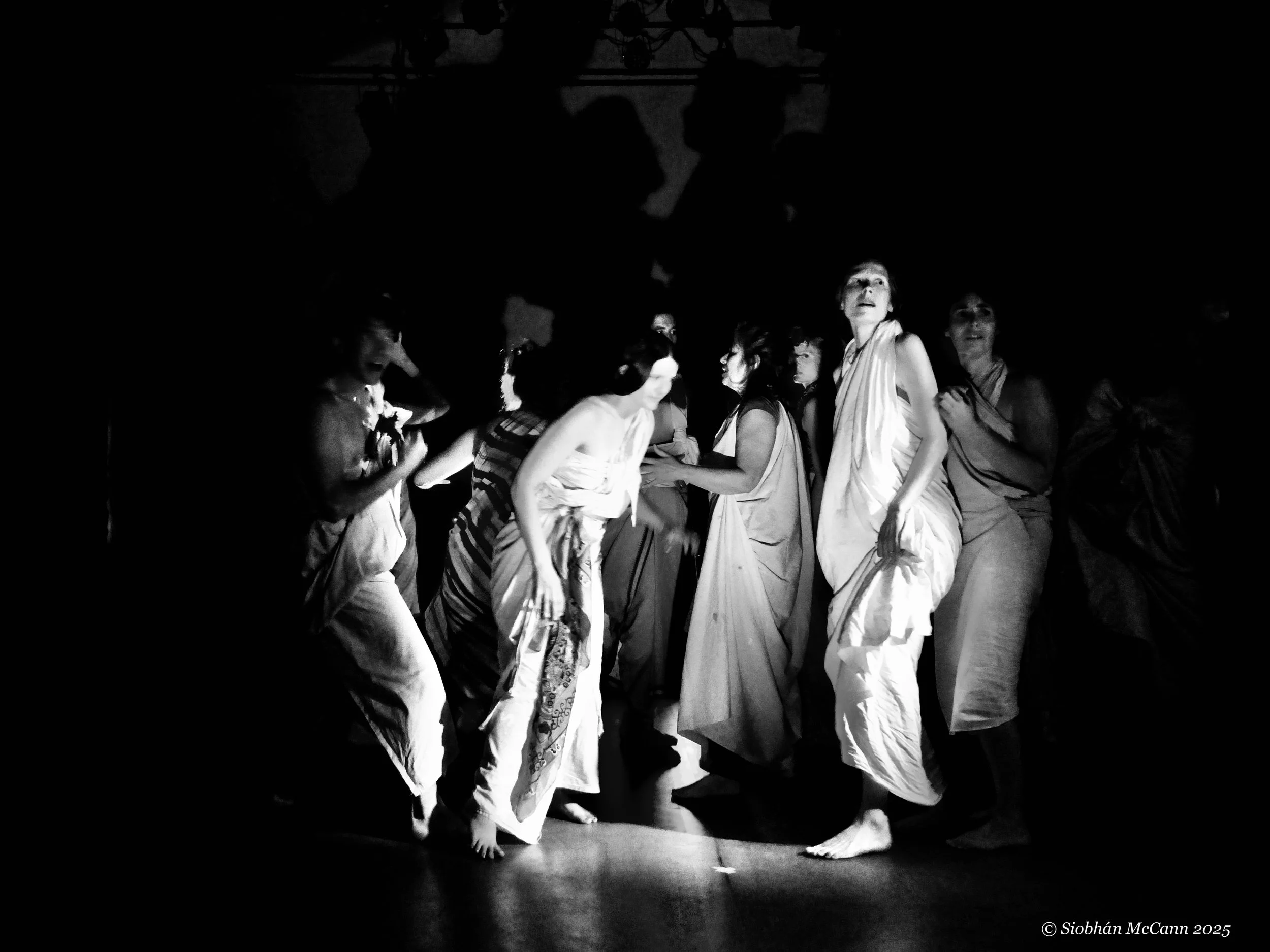Choral Challenges—Mastery of movement and Voice
Like many of my reflections, this one begins with the ancient Greek chorus of Athens in the 5th century. What circumstantial evidence we have paints a picture of an extremely athletic display—young cadets dancing for hours and singing in unison. The effect should have impressed Athens’ allies who would have been present, convincing them that they were in safe hands with the new generation of young talent soon to be soldiers on the frount. The effectiveness of such a display relies on absolute mastery of physical and vocal ability. It is a tangential example that brings me to reflect on “Acis and Galatea”—an ongoing project with the Roy Hart Theatre as directed by Ian Magilton. We are not classically trained singers, nor are we ballet dancers, and yet we are attempting something that should be all but impossible—dancing and singing Handel’s opera.
The arrival of Polyphemus in Acis and Galatea, 2025
The thought reveals the fiction
When the movement emerges from the voice or the voice emerges from the music or (and even better) they emerge together simultaneously and synchronize such that the audience doesn't see a singer dancing or a dancer singing but one person making a whole expression: this is for me what really works. Ideally there shouldn't be movement that merely follows the voice without a motivation of its own as strong as the voice. The danger comes when the disconnection between the voice and movement leads to thinking (either of the music or the movement) and those thoughts become parasitic to the expression. The thought (visible to the audience) reveals the fiction behind the expression. With movement, an actor can avoid this visible thinking by developing a habit of moving with presence, such that active thought is no longer required in improvisation. Developing that habit can be done in many ways, most of them falling under that umbrella term of physical theatre "training". The other possibility is to learn a choreography that is so deeply understood that it can be done in a variety of ways without losing its defining characteristics. Both require lots of time because in either case there is a long phase where the body has to incorporate the new way of moving or the new movement.
